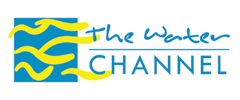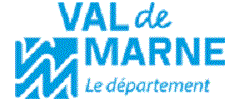Lesson from MDGs: Post 2015 goals have to be set as universal & within a Human Rights Based framework states WECF Director at Eurongos2013
Eurongos Conference 2013: Next Steps - Sexual and Reproductive Rights and Health on the Post 2015 Agenda
25.10.2013 |WICF
The aim was to find common ground beyond the 68th session of the United Nations General Assembly (UNGA) and a joint way forward to fulfil rights, achieve universal access to sexual and reproductive health and rights, realize women’s empowerment and promote investment in youth.
The conference specific objectives were to draw together and report on the current status and initial outcomes of the three UN processes (post-2015 development agenda, ICPD Beyond 2014 and Rio+20). And at the same time develop a global overview of opportunities in 2014 to promote a coherent post-2015 development framework and identify concrete options to advocate for SRHR.
More information can be found at: http://www.eurongos.org
Coming 2 years crucial for future development cooperation.
In the intergovernmental process on “Sustainable Development Goals”, the UN “Open Working Group” is preparing a framework for universal goals to follow the Millennium Development Goals. The High Level Panel Post2015 report, and the consultation reports ,are feeding into the Secretary General’s report on the Post 2015 Development Agenda. The SDG and the Post2015 processes are planned to merge and lead to one set of comprehensive, universal goals, which will set the direction for international cooperation on sustainable development from 2015 to 2030 and beyond .
Unique opportunity for women's organisations worldwide
If women’s priorities and gender equality are not well defined in the goals, targets and indicators, it will be a major set-back. It is a unique opportunity for women’s organisations worldwide, that this United Nations policy process has a specific institutional space for women’s participation, namely the Women’s Major Group (www.womenrio20.org), which was reconfirmed at the UN on July 9th. The Women’s Major Group (WMG) is co-chaired by WECF with DAWN , and in cooperation with WEDO and GFC . Through the Women’s Major Group, the women’s organisations globally have an institutional space to participate in the negotiations of the new global goals . The new global goals will be guiding for the more than 100 billion USD annual ODA funding, and influence major investments by states, private sector and IFIs.
Identifying emerging opportunities challenges and lessons learnt so far to promote a coherent post 2015 framework
Civil society representatives from key communities active in advocacy and campaigning on the post 2015 spoke out in a panel format, analyzing the results of the post - 2015 discussions to date and outcomes from the 68 th session of the UN General Assembly.
From the perspective of their own community they analyzed emerging themes, lessons learnt and challenges to date and identify common opportunities for civil society to promote a coherent post - 2015 framework.
Moderator of the panel debate was Dianda Veldman, Executive Director of Rutgers WPF. Sascha Gabizon, WECFs Executive Director was one of the speakers along with Françoise Girard, President, International Women’s Health Coalition and Ahmed Swapan, Member, Global Executive Committee
The key messages of Sascha Gabizon in her speech were that economic justice linkages with gender justice have to be made in the Post 2015 process. And that lessons can be learned from the MDGs: Post 2015 goals have to be set as universal and with a Human Rights Based Framework.
Mainstreaming gender in all goals remains a challenge in terms of practical terms. Denmark, a Permanent Representative in Geneva also calls for Twin track approach in the post 2015 process.
Hilde Kroes of Rutgers WPF stated on twitter in response: "Great call for human rights central to #post2015 agenda to go beyond the easy low hanging fruits! #nextstepssrhr"
WECF Executive Director Sascha Gabizon, is an expert on gender and sustainable development, and co-chairs the women’s major group since the beginning of the negotiations for the UN Sustainable Development Rio+20 summit, building the group from initially few women-environment organisations, to a true movement of global women’s leaders and with now 450 women’s organisations from all sectors involved in the post-Rio20 process on SDGs and Post2015 Development Agenda.
Related News
Meet the Winners of the Gender Just Climate Solutions Award at COP24
On the 70th anniversary of the Universal Declaration of Human Rights, we awarded Gender Just Climate Solutions Winners at the climate negotiations in Katowice, Poland
11.12.2018
Invitation: Gender Just Climate Solutions Award 2018
10 December, COP24 Katowice
04.12.2018
Getting to the Future We Want
4-7 November, Brussels: European Environmental Bureau’s (EEB) Annual Conference
12.11.2018
GoodFood4All
WECF and partners all over Europe start GoodFood4All Campaign
06.11.2018
#Ruralwomen: join our Women2030 campaign!
15.10.2018






































